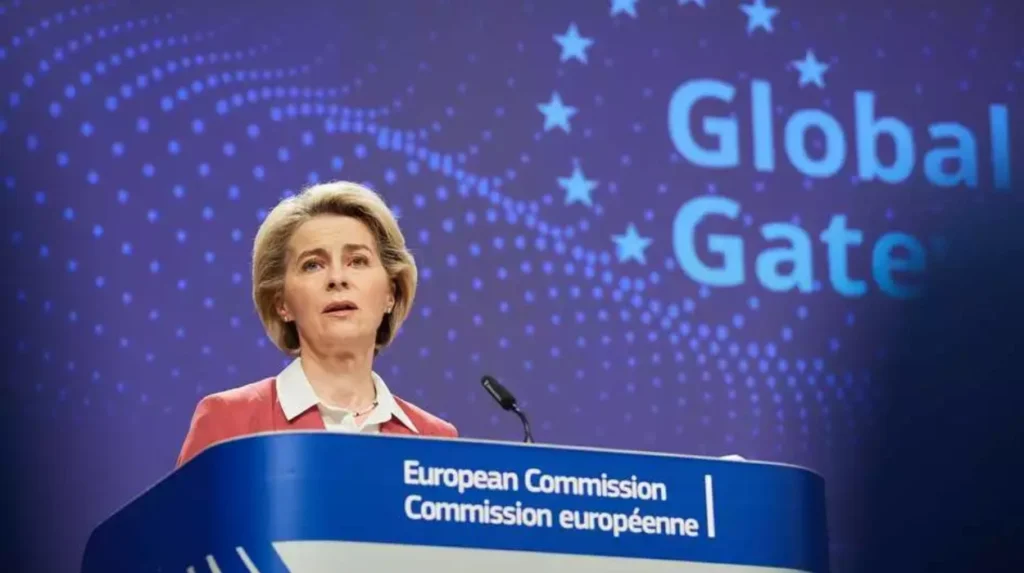The European Union’s Global Gateway Strategy represents a significant evolution in global infrastructure diplomacy, aimed at fostering sustainable development while countering rival influences such as China’s Belt and Road Initiative. Launched in 2021 with a target investment of €300 billion until 2027, the initiative emphasizes high standards, transparency, and connectivity across digital, energy, transport, health, education, and research sectors worldwide. This ambitious agenda not only shapes global economic partnerships but also alters the geopolitical landscape of lobbying, as diverse actors vie to influence EU policy and project implementation in strategic regions.
The Strategic Goals of the Global Gateway
At its core, the Global Gateway seeks to narrow the global investment gap by supporting infrastructure that promotes smart, clean, and secure connectivity. The EU prioritizes partnerships in Africa, Asia, Latin America, and the Western Balkans, dedicating about half of its funds to Africa to foster sustainable economic growth, digital and green transitions, and improve social sectors like health and education. Aligned with the Paris Agreement and the UN Sustainable Development Goals, the initiative underscores the EU’s normative agenda based on good governance, transparency, and respect for human rights.
To achieve this, the Global Gateway adopts a “Team Europe” approach that mobilizes public and private financing, combining diplomatic expertise with technical implementation. This multifaceted strategy enhances the EU’s global influence while addressing concerns about fragmented efforts among member states and the complexity of engaging multiple stakeholders.
How Global Gateway Shapes Geopolitical Lobbying
The scale and diversity of the Global Gateway’s projects have attracted extensive geopolitical interest and lobbying efforts from various state and non-state actors. Countries and corporations seeking contracts, partnerships, and regulatory advantages actively lobby EU institutions and member states involved in decision-making. These lobbying activities shape investment priorities, project selection, and compliance frameworks, impacting how effectively the Global Gateway meets its goals.
Lobbyists often leverage the EU’s fragmented institutional framework where multiple actors like the European Commission, Council, and European External Action Service have roles to influence policy negotiations behind closed doors. The involvement of private financial institutions and multilateral development banks also introduces additional lobbying avenues. Risks arise that powerful interests may steer projects toward commercial gains rather than strategic developmental needs or sustainability criteria.
Moreover, the Global Gateway’s emphasis on transparency and governance standards imposes new lobbying dynamics. Stakeholders must now engage in advocacy that aligns with the EU’s commitment to ethical and sustainable investment, heightening scrutiny over lobbying practices. This shift challenges traditional lobbying models focused solely on economic incentives, requiring actors to address broader social and environmental concerns.
Challenges in Balancing Interests and Transparency
Managing the geopolitical lobbying around the Global Gateway involves navigating competing priorities among EU member states, partner countries, and sectoral interests. Divergent views on China’s role, economic autonomy, and development priorities occasionally slow consensus, complicating the policy coherence needed for efficient project delivery.
Transparency initiatives such as mandatory lobby meeting disclosures and enhanced stakeholder consultations aim to mitigate undue influence. However, these measures face implementation gaps, given varied national practices and the complex nature of EU diplomacy. Ensuring equitable participation by smaller states and marginalized communities in lobbying and decision-making processes remains a challenge.
These complexities require the EU to bolster its regulatory frameworks, coordination mechanisms, and capacity to monitor and respond to evolving lobbying patterns. Aligning geopolitical strategy with governance and investment quality standards is crucial for sustaining the Global Gateway’s credibility and impact.
Geopolitical Implications and the Future Outlook
The Global Gateway marks a strategic shift for the EU as a global infrastructure actor capable of competing with rival geoeconomic powers. By embedding geopolitical considerations into its connectivity agenda, the EU not only fosters sustainable development but also asserts normative influence through transparent, high-standard partnerships.
The initiative’s future success hinges on effectively managing geopolitical lobbying pressures to safeguard the public interest and the strategic autonomy of the European Union. Collaborative governance models engaging civil society, partner governments, and private sectors can enhance resilience against fragmented or commercially-driven lobbying.
As global power competition intensifies, the Global Gateway’s approach may offer a replicable blueprint for value-driven infrastructure diplomacy that balances geopolitical, economic, and social objectives.
The EU’s Global Gateway Strategy has transformed the geopolitical lobbying environment by combining extensive infrastructure investment with a strong normative agenda. While it opens opportunities for diverse actors to influence EU external relations and development cooperation, it also calls for vigilant transparency and governance mechanisms to maintain policy coherence and uphold EU values. Navigating these complexities will be critical to ensuring that Global Gateway delivers sustainable, equitable, and strategic outcomes on the global stage.







